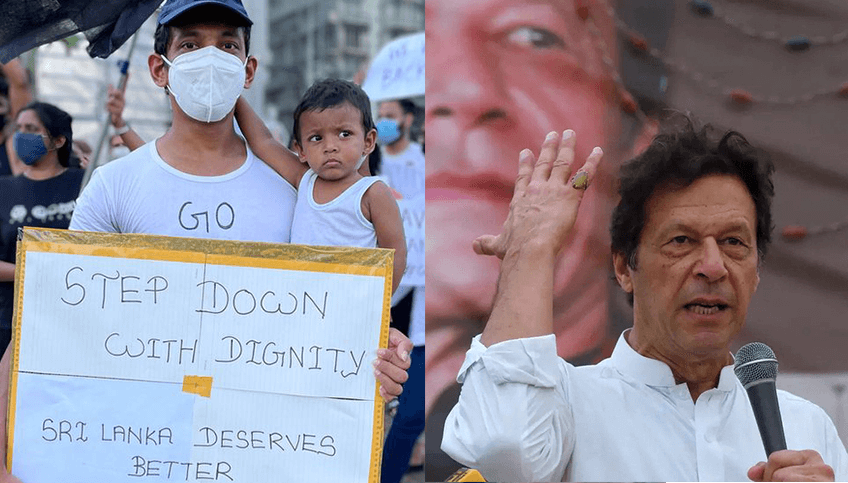
When Democracy Falls Short
Since the beginning of the Covid-19 pandemic, Sri Lanka’s economy much like many others has been on a downward trend with no signs of improvement. Amid street protests, fuel shortages and food scarcity, the situation finally came to a head on April 5th when 41 lawmakers including Finance Minister Ali Sabry decided to walk out of the ruling government. With the governing party now in minority in the parliament, the opposition finds itself free to hold a vote of no confidence against the Prime Minister, drawing a dangerously close parallel to Pakistan’s current political situation.
We can continue highlighting similarities and differences between Pakistan and Sri Lanka’s state of political disarray to no end, but what is even more concerning is the trend of toppling governments that bears an eerie resemblance to the Arab Spring Uprisings of 2010-2011. A series of riots and revolts fueled by violence all throughout North Africa and the Middle East, that took down the authoritarian regimes of Tunisia, Egypt and Yemen among others.
The irony here is that the Arab Spring Uprisings were pro-democracy protests, rooted in discontent and suppression caused by authoritarian regimes. Why then, while living under democratic governments, do we find ourselves in the same situations over and over?
Fuel crises. Inflation. Rising food prices. Collapsing health systems. Economic catastrophes. Power hungry leaders. These were the predicaments faced by the people of Egypt, Libya and Tunisia; and these are the same predicaments we face today. They unfold slowly, triggered by global pandemics and political enmities, and explode and disrupt the lives of those who deserve them the least.
For the average citizen, who bears the brunt of all economic disasters, what difference is there between authoritarianism and democracy? Can a democratic leader truly guarantee freedom from economic turmoil?
Democratic governments cannot promise economic safety any more than Imran Khan can promise to end corruption. The cracks in the system will remain.
The reality is that democracy may be one step closer to political, social and economic welfare, but it is by no means the end.
Nida Babar
Media Quotient Inc.



